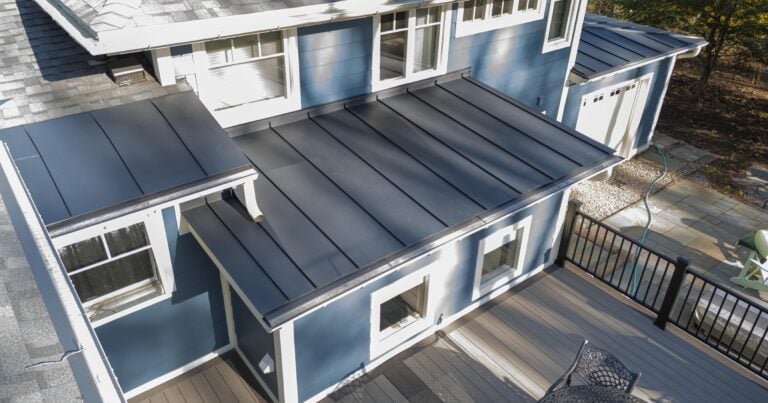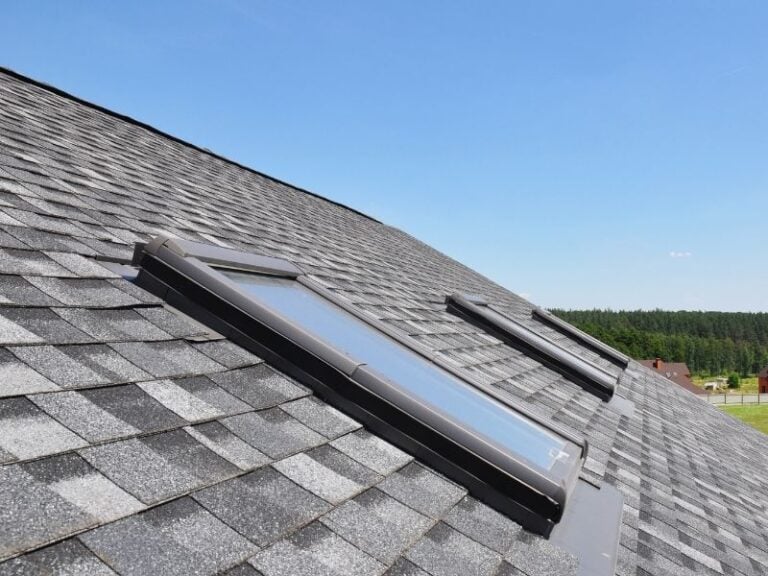When you own or manage a property, the roof above your head is more than just a shelter it’s a critical investment that protects everything beneath it. For business premises, the roof plays a direct role in safety, energy efficiency, and even long-term costs. Yet many property owners often ask: what is commercial roofing and how is it different from residential roofing?
This guide explores commercial roofing in detail, its purpose, materials, benefits, challenges, and when to call a professional. By the end, you’ll not only have the information you need to make informed choices but also the clarity to recognise when expert service is required.

Key Takeaways
- A well-installed metal roof can last 40–70 years, depending on the material and conditions.
- Lifespan is influenced by climate, maintenance, and installation quality.
- Metal roofs often outlast asphalt shingles by decades.
- Replacement becomes necessary when corrosion, leaks, or structural damage occur.
- Professional installation is essential, DIY efforts can lead to expensive problems later.
Overview
At its core, commercial roofing is about providing a strong, long-lasting barrier that safeguards commercial spaces such as offices, warehouses, schools, and retail centres. While residential roofs typically use pitched designs and materials like asphalt shingles, commercial roofs are often larger, flatter, and built with different systems such as metal panels, membranes, or modified bitumen.
Understanding the distinctions between the two helps property owners weigh their options. And because mistakes can lead to significant expenses or safety issues, working with reliable professionals like Kornerstone Roofing is the smartest choice.
Types of Commercial Roofing Systems
- Built-Up Roofing (BUR)
One of the oldest systems, BUR involves multiple layers of asphalt and reinforcing fabrics. It’s valued for its affordability and weather resistance.
- Metal Roofing
Durable and long-lasting, metal is common in commercial spaces. With proper care, metal roofs can last 40–70 years, making them a cost-effective choice.
- Single-Ply Membrane Roofing
This includes TPO (thermoplastic polyolefin) and EPDM (ethylene propylene diene monomer), both highly popular for flat roofs. They’re lightweight and resistant to UV radiation.
- Modified Bitumen
A hybrid system that combines asphalt with modifiers for added flexibility and strength, often applied on flat or low-slope surfaces.
Why Commercial Roofing Matters
A commercial roof does more than just cover a building. It contributes to:
- Protection: Safeguards stock, equipment, and staff.
- Efficiency: Insulated and reflective materials reduce heating and cooling costs.
- Compliance: Commercial buildings must meet stricter building codes than homes.
By asking what is commercial roofing, property owners begin to see its far-reaching influence on both safety and operating expenses.
Common Challenges in Commercial Roofing
- Water Pooling on Flat Roofs – Poor drainage leads to leaks and structural concerns.
- Weather Damage – Heavy snow, rain, or strong winds can accelerate wear.
- Improper Installation – Choosing unqualified installers can create hidden risks that surface later.
- Lack of Maintenance – Ignoring inspections or repairs allows small problems to grow costly.
Each of these risks underscores the need for professional service. Attempting to fix or replace a commercial roof without experience can lead to expensive mistakes.
Costs and Long-Term Value
Commercial roofing costs depend on size, materials, and installation requirements. For example:
- BUR is generally the least expensive per square metre but may require more upkeep.
- Metal and single-ply systems cost more initially but provide long service life.
The long-term value lies in reduced repairs, better energy efficiency, and improved building performance. It’s not always about the lowest upfront cost but about selecting a system that balances durability and efficiency for your specific property.
Signs It’s Time to Replace or Repair
- Leaks or water stains inside the building.
- Sagging or visible structural issues.
- Rising energy bills due to poor insulation.
- Roof membrane bubbling or blistering.
If you notice these signs, calling experts like Kornerstone Roofing in Round Lake, NY is the safest move. Attempting DIY fixes often makes problems worse.
Perspectives to Consider
Some property owners believe that commercial roofing is simply a larger version of residential roofing. That’s not the case. The differences in materials, load-bearing expectations, and design make commercial roofs a distinct specialty. Another perspective worth considering is the false economy of delaying repairs waiting to replace or repair a failing roof often leads to interior damage that’s far more costly than early intervention.
If you’ve been asking yourself what is commercial roofing and how it applies to your property, contact Kornerstone Roofing, 15 Wood Rd, Unit 100, Round Lake, NY 12151, United States, our team specializes in long-lasting, precision metal roofing. We use proven techniques and high-quality materials to protect your home for the long term. Call us today at (518) 555-1234 to learn more about your options.

Conclusion
Commercial roofing isn’t just about covering a building. It’s about protecting investments, ensuring safety, and maintaining energy efficiency. By understanding what is commercial roofing, property owners are better prepared to make decisions that affect both their building and business operations.
FAQs
Q: What is commercial roofing, in simple terms?
A: It’s the roofing system designed for business, industrial, or large-scale properties, often using different materials and methods than residential roofs.
Q: How long does a commercial roof last?
A: Depending on the material, anywhere from 20 to 70 years. Metal and single-ply systems typically offer the longest lifespans.
Q: Can I install or repair a commercial roof myself?
A: It’s strongly discouraged. Commercial roofing requires specialist skills, equipment, and knowledge of safety standards.
Q: How often should I have my commercial roof inspected?
A: At least once a year, and after major storms.



